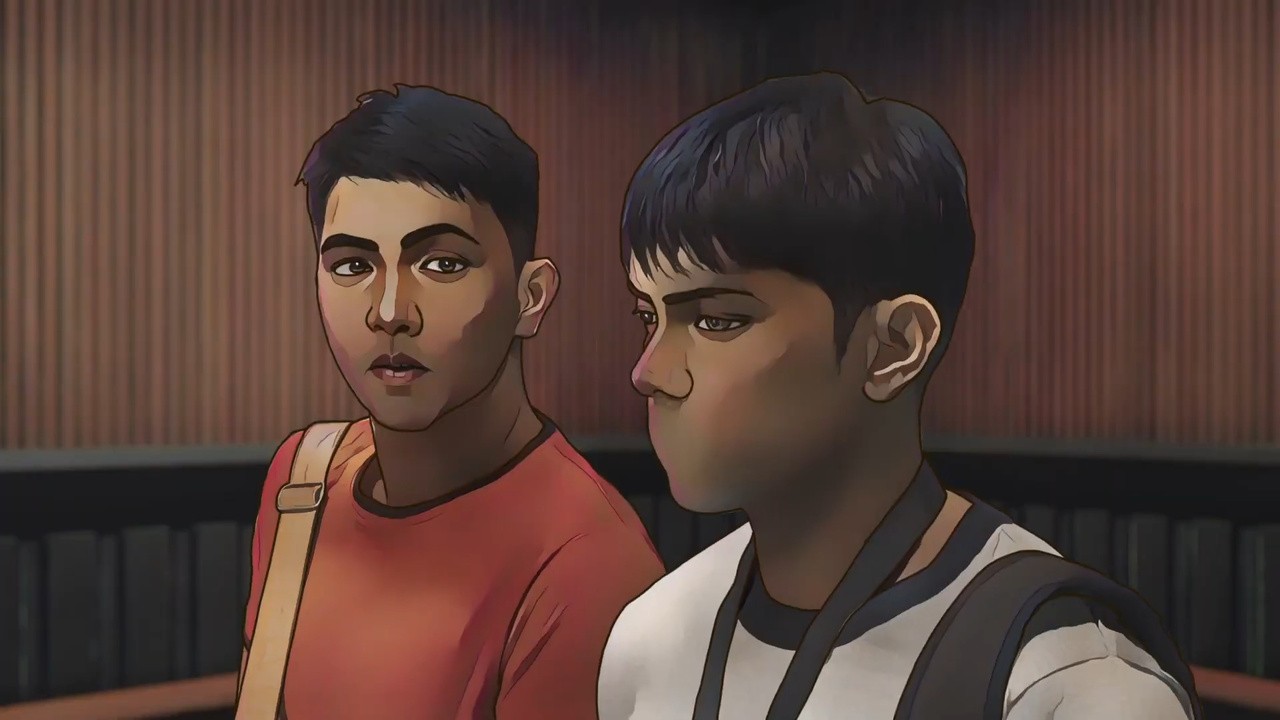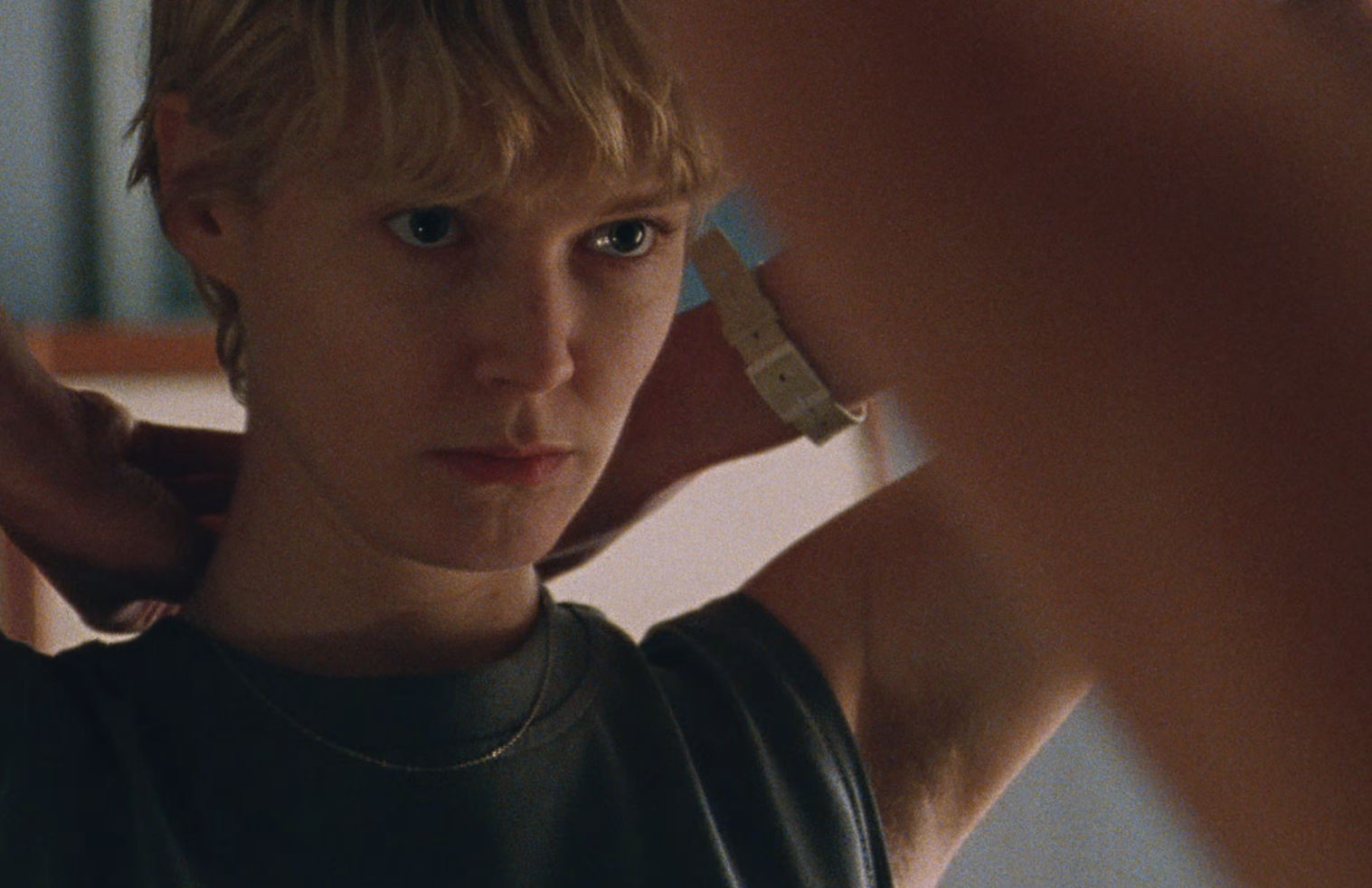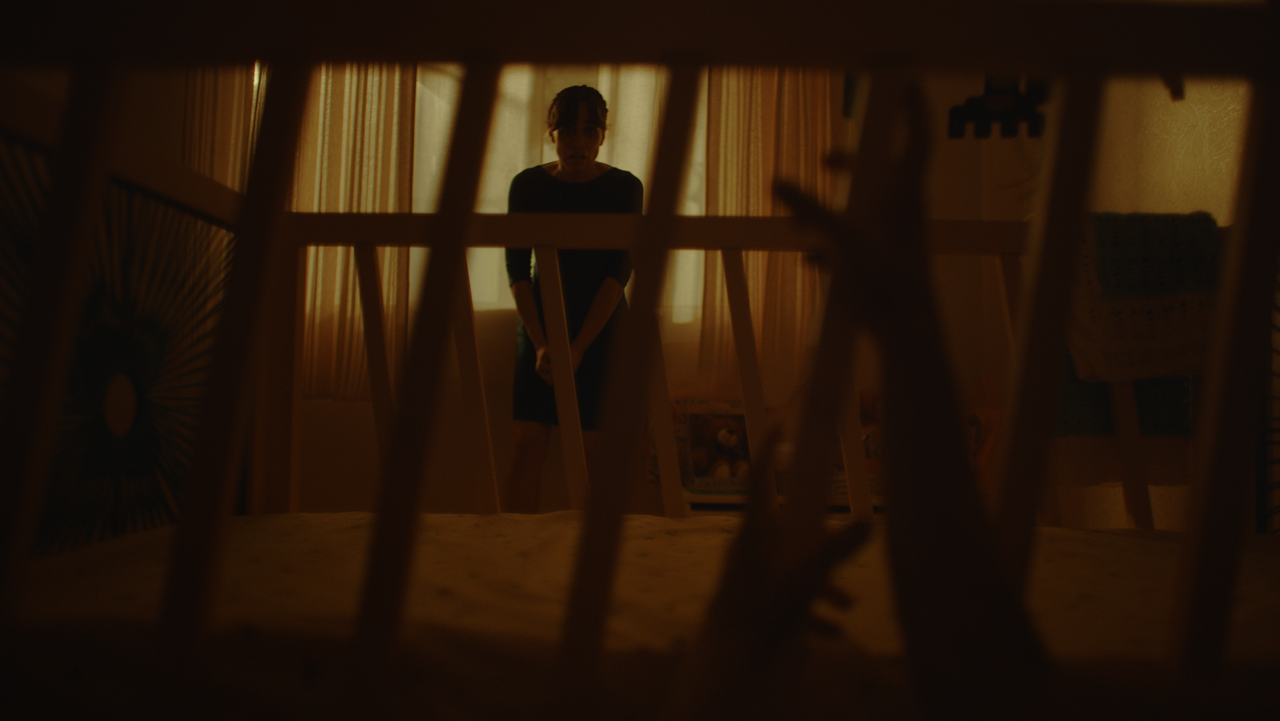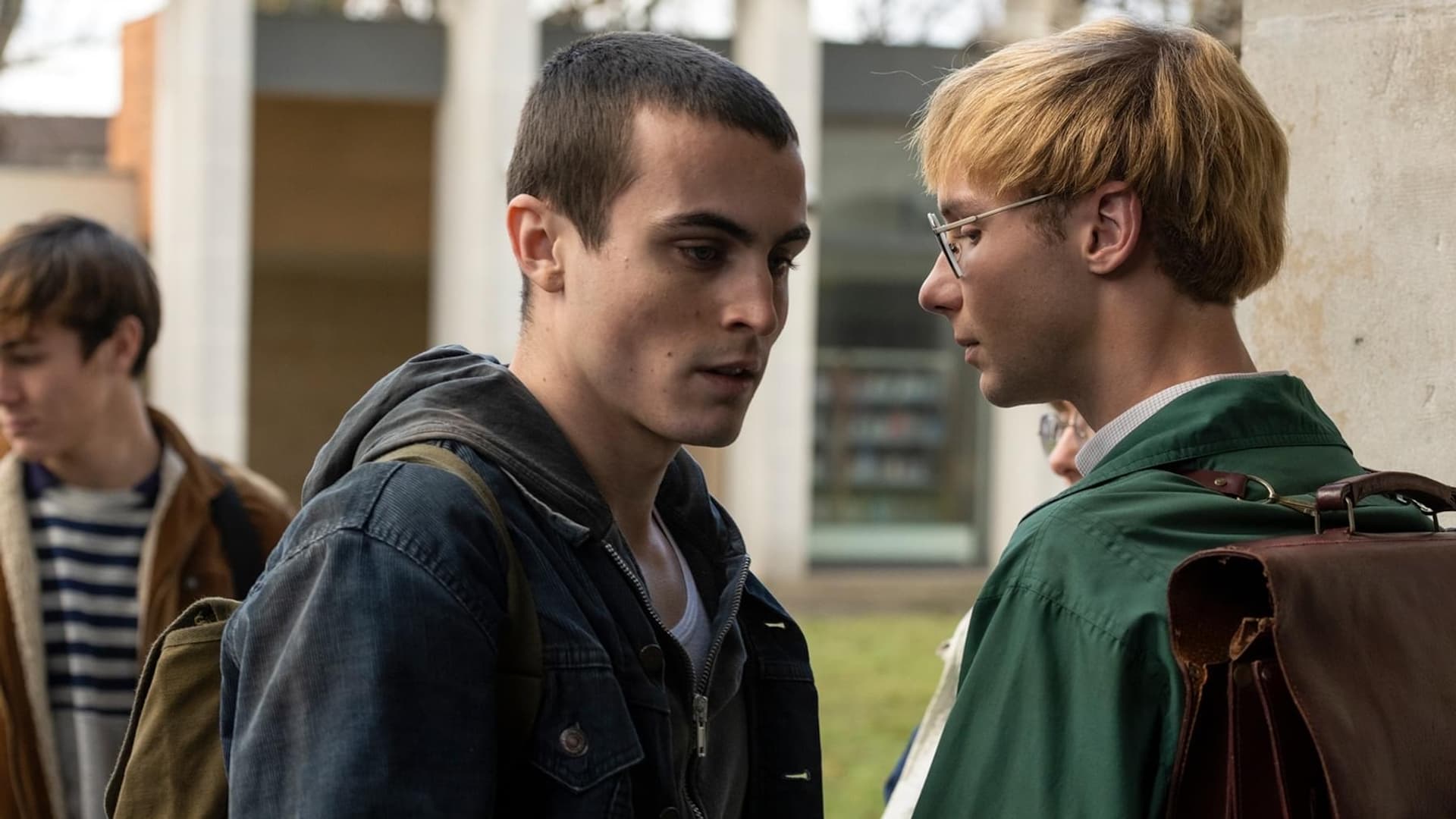
20 Best Queer Films of 2023
April 15, 2025
Share:
It’s 2023, and representation has never been more diverse and abundant in cinema. This year alone, we’ve seen tropes be subverted (as in Cassandro, the story of the first out wrestler) and genres reimagined (as in the lesbian horror film Bad Things). The fluidity of love is examined painfully in Ira Sachs’ Passages, while longing has never felt more tender in the much-celebrated All of Us Strangers. And more optimistically, comedies like Bottoms and Red, White & Royal Blue offer a light-hearted take on the unique LGBTQ+ experience. This is all to say that we’re spoiled for choice, so in this list, we try to narrow down your options to only the best the year has to offer so far. Below is a hopefully helpful guide on the very best queer films of 2023 and where you can stream them right now.
Read also:
11. Doi Boy (2023)
Genres
Director
Actors
Moods
After years of documentaries covering Thailand’s controversial issues, some of which have been temporarily banned by the Ministry of Culture, Nontawat Numbenchapol takes a step into feature film in Doi Boy. The plot covers plenty of the topics he’s previously depicted– immigration, prostitution, and corruption– but it unfolds naturally into a slow-paced, but moving drama where an undocumented sex worker tries to find home. Awat Ratanapintha as Sorn excellently leads this journey, but Arak Amornsupasiri as reluctant cop Ji, and Bhumibhat Thavornsiri as passionate activist Wuth also make their mark. While the film doesn’t delve into the intricate intersectionality, it feels like that’s part of the point. The notion of a nation doesn’t care about people’s dreams, even if that dream is for the nation to be better.
12. Iti Mapukpukaw (2023)
Genres
Director
Actors
Moods
As one of the few animated Filipino films ever made, there’s a question as to why The Missing should use the animation in the first place. The animation here is much more rough than the ones from other countries, and while it’s a bit more pricey, the filmmakers could have filmed this in live action with practical SFX and CGI. But there’s a big reason why it was animated anyway– It’s because of the story. It’s not just because the protagonist Eric is an animator– it’s because animation, to that specific lead, was the way through which he was able to form a life after trauma, becoming the livelihood that allowed him to move out of his childhood home, and far far away from the trauma he faced. Writer-director Carl Joseph Papa also takes advantage of the medium by creating designs that match Eric’s current state of mind– regular, day-to-day life is rotoscoped, while the blank portions of his memory are traditionally drawn in the style Eric would have had during that age. It’s an unusual approach, but whether or not the story was adjusted to the budget, Iti Mapukpukaw is undeniably a touching and inventive drama that depicts the complexities of grief.
13. Blue Jean (2023)
Genres
Director
Actors
Moods
Led by Rosy McEwen’s commanding performance brimming with fear and self-loathing, Blue Jean pours all of the anguish and defiance felt by the LGBTQ+ community under Margaret Thatcher’s administration into a single character. Writer-director Georgia Oakley keeps her plot light, but through conversations with other beautifully portrayed queer women (especially those played by Kerrie Hayes and Lucy Halliday), she piles on one conflicted emotion after another about what this lesbian woman’s responsibility is toward herself and her community when they find themselves threatened. But even as the film takes a definite stance, it validates every response as authentic—borne out of a need to protect the people whom one loves.
14. Wham! (2023)
Genres
Director
Actors
Moods
For a short while in the ‘80s, the pop scene benefited from the sheer musical joy created by George Michael and Andrew Ridgeley, known together as Wham! With confectionary hits like “Wake Me Up Before You Go-Go” and “Last Christmas,” the British duo sang about the escapism that a generation desperately sought out. Their songs were dismissed by pundits as shallow (“How can the country be in love with these two idiots?”), but as young people flocked to their concerts in droves, it was clear that Wham! struck a chord with the worn-out youth.
They were no Beatles or Bowie, not heavyweight enough to make a lasting impression in our collective pop culture memory, but theirs is a story rich with meaningful lessons. Wham!, the film, is as much about the personal lives of the duo as it is about the difficulty of making it as independent artists; about the saving grace of music; and about the importance of authenticity.
15. Passages (2023)
Genres
Director
Actors
Moods
A great example of frank, emotionally honest filmmaking with three totally vulnerable lead performances, Passages takes a subject that can so easily be reduced into clichés—infidelity—and approaches it with a genuine sense of melancholy. It can still be frustrating to watch fully developed adults refuse to communicate more clearly about their feelings, but director and co-writer Ira Sachs also understands the nuanced gender dynamic that informs some of these bad decisions. Tomas understands that his commitment to Martin may not give him the “easy” satisfaction of a traditional romance, but there is also a sense that his attraction to Agathe (supposedly the first time he’s truly fallen for a woman) might be more of an impulsive attempt to settle for something safer, something that he has more control over.
Ben Whishaw is reliably sympathetic as Martin, and Adèle Exarchopoulos carries herself with the unembellished authenticity that many of the best French actors do. And Franz Rogowski makes Tomas both entirely pathetic and still so very heartbreaking in the predicament he’s put himself into. There are no cheap histrionics or outbursts of emotion here—just performers living fully within each moment and selling us on the situation they’re in.
16. Nyad (2023)
Genres
Director
Actors
Moods
After winning Oscars for their documentary work, filmmakers Elizabeth Chai Vasarhelyi and Jimmy Chin make their narrative feature debut with Nyad. The move to narrative fiction isn’t a monumental jump for the director duo, whose cinematic documentaries (among them Free Solo and The Rescue) play like nerve-shredding action thrillers and intense human dramas. Nor does Nyad’s subject — another extreme feat of human daring and endurance — make this feel a million miles away from their most famous works.
The most obvious departures from the directors’ documentary strengths — Nyad’s flashbacks and hallucination scenes, for example — do sometimes highlight their newness to narrative filmmaking, however. These scenes feel shallow and therefore disconnected from the movie’s otherwise deeper treatment of its subject, just as the performances dip into outsized cliches at times. Mostly, though, Nyad manages to float above the trap of trying too hard to be an inspirational sports drama thanks to its confrontation of Diana’s prickly personality. This flips the film’s perspective onto that of Diana’s team (including her coach and former girlfriend, played by Jodie Foster), who ultimately suffer the consequences of her stubbornness. That refusal to submit to hagiographic impulses gives the film a documentary-like edge of truth, making the rousing moments here feel genuinely earned.
17. Huesera: The Bone Woman (2023)
Genres
Director
Actors
Moods
Huesera: The Bone Woman might not be the scariest film horror fans would see, but it does strike at the heart of the scary experience of motherhood. Through eerie sounds of breaking bones and weirdly contorted hands at the edge of beds, the film depicts new mother Valeria being haunted by the titular spirit, despite her prayer to the Virgin Mary. Valeria pleads for her husband and family to listen, though each time she does becomes proof of her faults as a mother. The terror in newcomer Natalia Solián’s face makes it all feel believable, but it’s the folk-inspired imagery of first-time feature director Michelle Garza Cervera that turns this film into a feminist masterpiece.
18. Shortcomings (2023)
Genres
Director
Actors
Moods
It’s always tricky translating literature to screen. In Shortcomings’ case, it struggles to make its Berkeley and New York settings appear more lived-in than just a few postcard-like frames. You could also tell that the conversations it stirs up about things like representation and mixed-race relationships began in the early aughts, when the novel it was adapted from was first released. But those lapses are small and forgivable in the face of a lovely ensemble cast and a whipsmart script.
It also takes a special kind of skill to make a character as fiercely unlikeable as Ben (Min) watchable, to hold up a mirror to the audience and make them stay. Thankfully, it’s a skill that Tomine and first-time director Randall Park display with such grace. Ben, Alice (Sherry Cola), and Miko (Ally Maki) are flawed and often pathetic, but they’re also honest reflections of who we become when the demands of self-preservation and romantic openness clash. It’s a little unnerving to hear them verbalize what we’ve always feared about ourselves, but it’s also exhilarating, not to mention comforting, knowing that we’re not alone in feeling this way. Shortcomings works because it doesn’t confine itself to genre: it’s a character study first, and a romantic comedy second.
19. Lie with Me (2023)
Genres
Director
Actors
Moods
Oh, the pains of first love. Many a film has been created in memory of it, so the struggles of the protagonist of Lie With Me would likely be familiar. But what Lie With Me does so well is the way it depicts Stéphane Belcourt’s perspective, alternating between his late return and the memories that only he alone holds of his first love, the memories that still continue to make a mark in his life and writing. Leading man Guillaume de Tonquédec is able to subtly capture the anguish in his performance, and Victor Belmondo capture the hope to learn another side of his dad, but it is newcomers Jérémy Gillet and Julien De Saint Jean that capture the chemistry that makes the Lie With Me so compelling to watch.
20. Remy & Arletta (2023)
Genres
Director
Actors
Moods
Based on the novel from writer, producer, and lead Micaela Wittman, indie drama Remy & Arletta is deeply personal. It’s partly because it’s based directly on Wittman’s own personal coming-of-age story, but it’s also because of how confessional it feels. Many scenes feel like uncomfortable memories, like the way Remy hides her real home from Arletta, but when Arletta doesn’t give up on Remy, and tries to make it right before graduation, the film crafts a beautiful connection that was life-changing even if it was fleeting. Remy & Arletta might have felt cut short in terms of runtime and in terms of the friendship itself, but it’s nonetheless a thoughtful, earnest drama that captures how important that love must have been.
Read also:
Comments
Add a comment
Ready to cut the cord?
Here are the 12 cheapest Live TV streaming services for cord-cutting.
More lists
Lists on how to save money by cutting the cord.
Curated by humans, not algorithms.
© 2025 A Good Movie to Watch. Altona Studio, LLC, all rights reserved.










